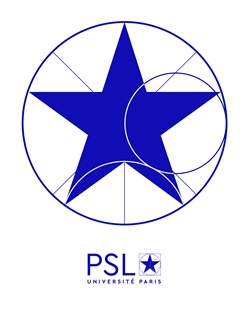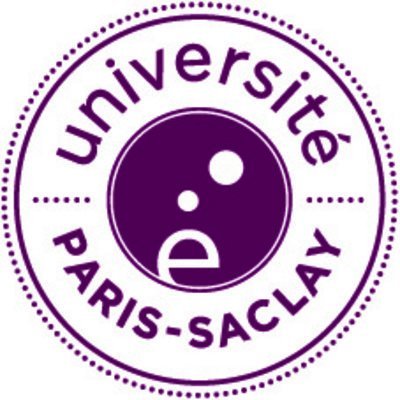

Why Study in France ?
France is a top choice for international students, offering world-class education, affordable tuition, and a rich cultural experience. With over 3,500 institutions, it excels in business, engineering, arts, and humanities. Students benefit from a diverse environment, globally recognized degrees, and the chance to explore France’s history, art, cuisine, and language—opening doors to career opportunities across Europe and beyond. Post-study work options further enhance its appeal.
- Affordable Education
- Cultural Diversity
- Global Opportunities
Dailing Code
+33
Emergency Number
112
Universities and Colleges
3,500+ universities
Exchange Rate
≈ 97.10 INR
Official Languages
French
Population
68 million people
Top Universities in France
France hosts 9 globally ranked universities, according to the QS World University Rankings 2024,
making it a popular destination for Indian students seeking quality education abroad.
All Universities
| University | Location | IELTS | Ranking |
|---|---|---|---|
| Harvard University | Cambridge, United States | 6.5 | 4 |
| Yale University | New Haven, United States | 7.0 | 23 |
| Stanford University | Stanford, United States | 6.5 | 6 |
Admission Requirements to Study in France
Key requirements for studying in the France that you must fulfill when applying to a France university:
Core Verification Documents
- Copy of a valid passport
- Proof of English proficiency (TOEFL/IELTS)
- ACT/SAT/LSAT (UG) · GMAT/GRE (PG)
- Academic transcripts
- Evidence of funds
Supporting Application Materials
- Academic references
- Employer recommendation
- CV / Resume
- Statement of Purpose (SOP)
- Essays (if required)
- Portfolio
- Certificates of extracurriculars
Cost of Studying in France
The total cost of studying in France can vary depending on various factors such as the type of university, location, and individual lifestyle choices. Take a look at the estimated breakdown of the cost of studying in France below.
The average tuition fees for international students in France vary depending on the level of study and field of study. Undergraduate programs tend to be more expensive compared to postgraduate courses.
- Public Universities (Bachelor) :€2,770 – €3,770
- Public Universities (Master) : €3,770 – €4,770
- Grandes Écoles : €10,000 – €30,000
- Private Institutions :€10,000 – €20,000

In addition to the tuition fee, students must know all the other expenses that might be important to plan their budget accordingly.
- University Dormitories:€200 – €600
- Private Rented Apartment :€500 – €1,200
- Shared Apartment : €400 – €800
- Homestay :€200 – €800
- Utilities (Electricity, Water, etc.) :€50 – €100

Visa to Study in France
International students planning to study in France have several visa options available, depending on the duration and purpose of their stay. Here are the main visa types:
Student Visa (VLS-TS)
Long-stay visa allowing study in France and part-time work (up to 964 hours annually).
Temporary Long-Stay Visa
Short-term study visa without work rights during the stay.
Post-Study Work Visa
Permits staying in France for up to 24 months to seek employment or start a business.
Talent Passport Visa
Enables long-term stay and work in France for professionals in recognized sectors.
Part time Careers and Work Opportunities
France offers various part-time work opportunities for international students, enabling them to gain valuable experience and supplement their living expenses during their studies.
Part-time Work Opportunities
International students in France can work up to 20 hours per week during the academic year and full-time during holidays, gaining experience in areas like retail, hospitality, and tutoring.
Post Study Work VISA
Master’s graduates can apply for the APS visa, allowing them to stay in France for up to 24 months to find a job or gain work experience, easing their transition into the French labor market.
Top Trends in the France Right Now
US Implements New Visa Rules to Reduce Wait Times for Indians
There is good news for Indian nonimmigrant US visa applicants!...
Read MoreAustralia Launches MATES Program for Indian Professionals
Canberra, Australia – The government of Australia has made the...
Read MoreCanada Simplifies Immigration for Students and Workers
Ottawa, Canada – As of today, Canada has released a...
Read MoreFrequently Asked Questions
Students from EU/EEA countries do not need a visa, while non-EU students must apply for an extended-stay visa with a residency permit (VLS-TS) before arriving in France.
No, many programs are offered in English, but knowing French can enhance your experience and may be required for some courses.
Public universities charge around €2,800 per year for Bachelor's degrees and €3,800 for Master's degrees, while private institutions can range from €3,000 to €30,000 annually depending on the program.
Scholarships can be applied for through Campus France, which lists various opportunities available to international students.
The French education system includes three levels: Licence (3 years), Master (2 additional years), and Doctorate (usually 3 more years). It also features prestigious institutions known as "grandes écoles" that offer specialized programs.





















